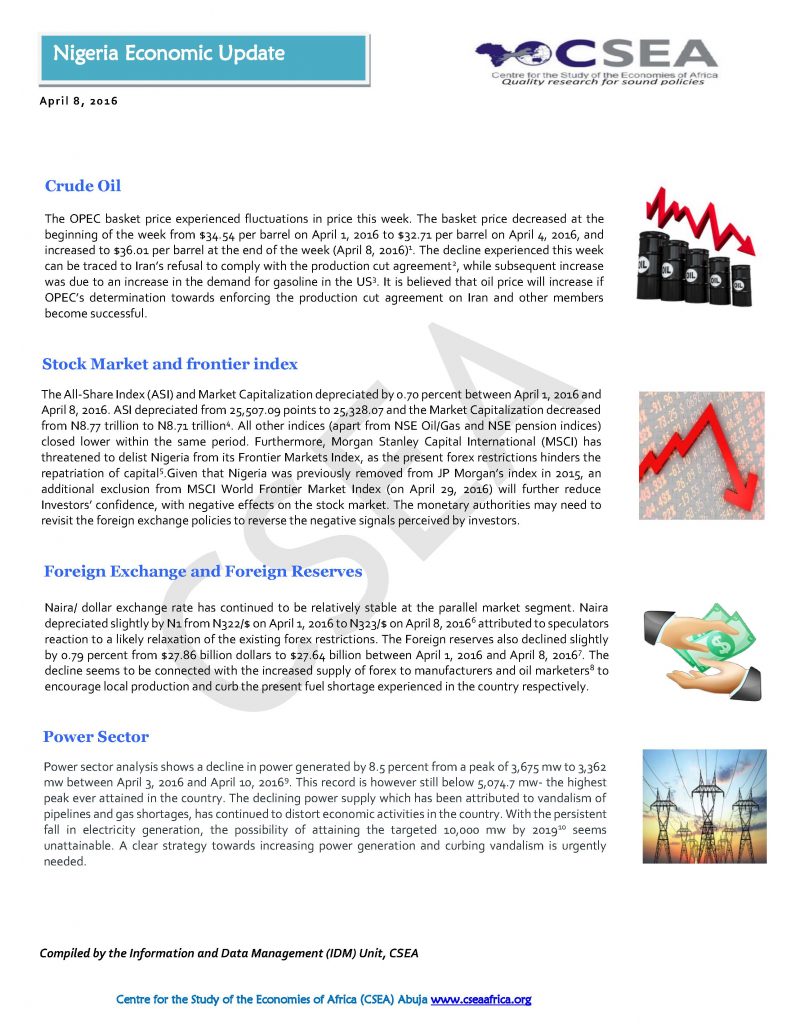Macroeconomic Report & Economic Updates

April 28, 2016
Nigeria Economic Update (Issue 17)
Power sector analysis shows a decline
in power generated by 8.5 percent from a peak of 3,675 mw to 3,362 mw between
April 3, 2016 and April 10, 20169. This record is however still
below 5,074.7 mw- the highest peak ever attained in the country. The declining
power supply which has been attributed to vandalism of pipelines and gas
shortages, has continued to distort economic activities in the country. With
the persistent fall in electricity generation, the possibility of attaining the
targeted 10,000 mw by 201910 seems unattainable. A clear strategy towards
increasing power generation and curbing vandalism is urgently needed.
Related
Nigeria Economic Update (Issue 29)
OPEC weekly basket
price decreased marginally from $45.95 on June 24, 2016 to $45.26 on July 1,
2016,while Nigerias bonny light fell by $1, from $48.90 to $47.91.
The apparent decline in crude oil price was driven by lingering market demand
uncertainty, following the unexpected Brexit referendum. More so, ease
in supply disruptions in Nigeria and Canada may have contributed to the
downward pressure on prices. Going forward, until there is greater regulatory
precision on global oil output levels, prices may likely remain stuck or continue
to exhibit a downward trend. Although, Nigerias fiscal constraints slightly
relaxed with oil production increasing in the review week (following repairs on
sabotaged pipeline channels), potential global crude oil oversupply threatens
governments revenues. However, oversupply threats could be reduced if there is
a consensus on oil production quotas in the upcoming OPEC meeting.
Nigeria Economic Update (Issue 7)
Recent domestic Crude oil statistics from the Nigerian National Petroleum Corporation (NNPC), reveals an increase in total crude oil export sales in December 2016. Relative to November 2016, total export sales of crude oil rose from $166.18 million to $195.40 million in December 2016 representing 17.6 percentage (Month-on-Month) increase. The increase is attributable to a rise in crude oil production following a drastic (Year-on-Year) reduction in pipeline vandalism in the preceding month. Given that improvement in oil revenue is critical to fiscal sustainability and external balance, intensified efforts should be implemented towards the maintenance and sustainability of peace in the Niger Delta Region.
